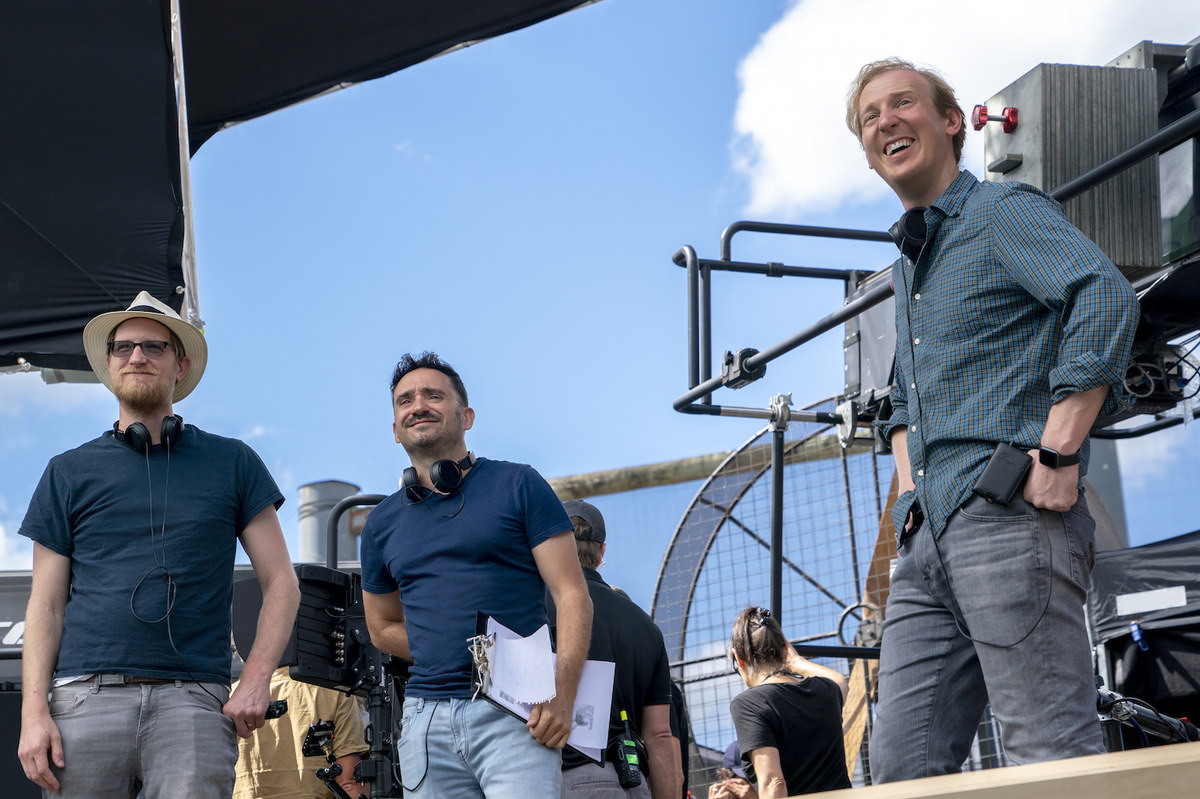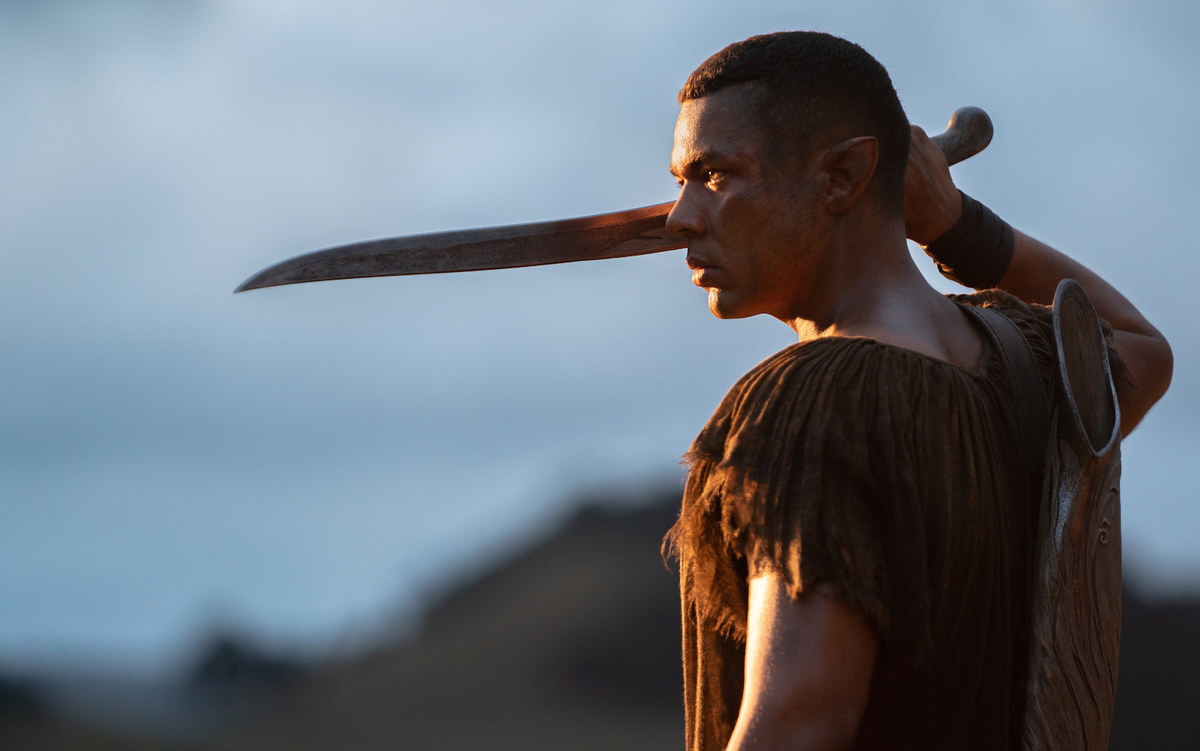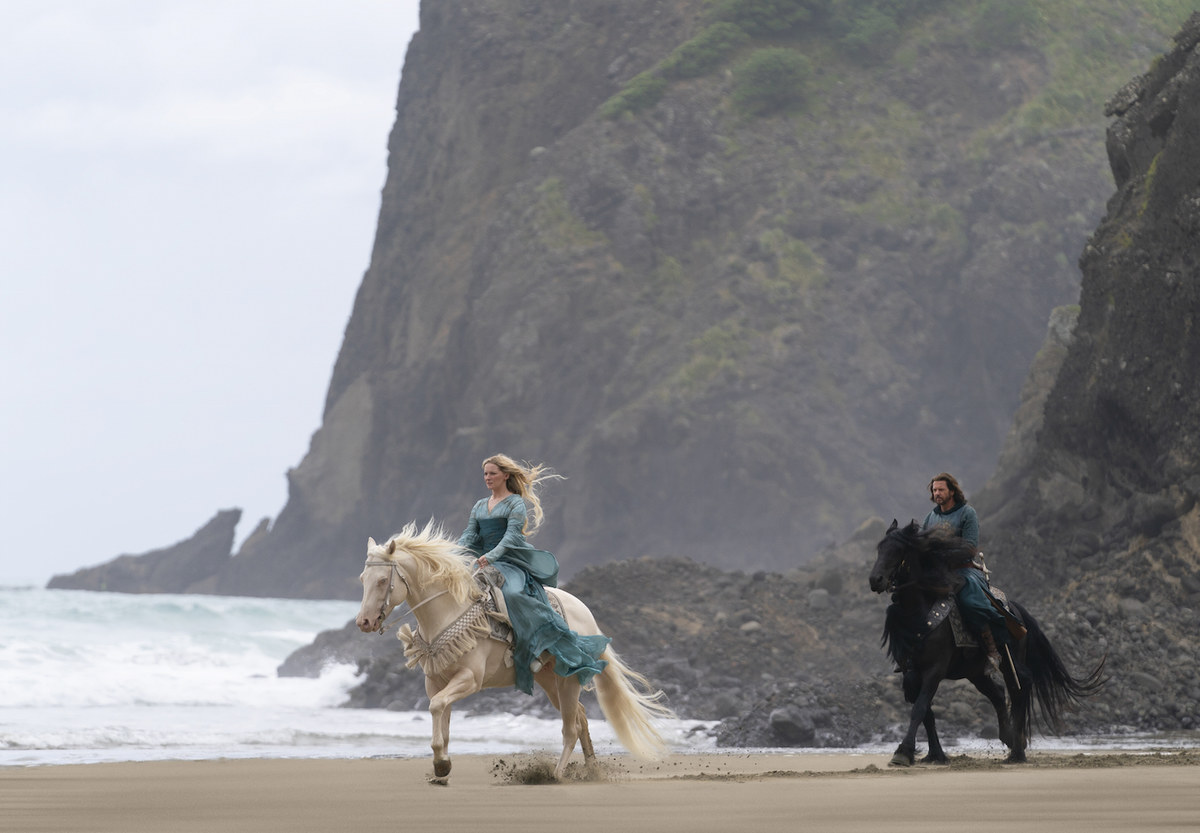Life Style: Red Sea International Film Festival celebrates women from Arab film industry in Venice

Inside ‘The Lord of the Rings: The Rings of Power’ — the most expensive show ever made
DUBAI: There has never been a television series more ambitious than “The Lord of the Rings: The Rings of Power.” The first season, which premiered on Amazon Prime on Sept. 2, cost a staggering $465 million to make — roughly 10 times the price of the first season of “Game of Thrones” 11 years ago — with a planned $1 billion for the intended five-season series on a whole. If any franchise can justify that kind of investment, though, it’s the world of Middle Earth.
“It just goes to show how universal J.R.R. Tolkien’s stories still are,” Markella Kavenagh, the series’ 21-year-old star (born the same year as Peter Jackson’s first ‘Lord of the Rings’ film was released), who plays the halfling Nori Brandyfoot, tells Arab News. “These stories highlight the importance of community, finding strength in vulnerability. Across generations, people see themselves in these stories.”
In the world of high fantasy, no story has ever come close to the global impact of J.R.R. Tolkien’s “The Lord of the Rings.” (We’re classifying “Harry Potter” as low fantasy.) While wizards, dwarves and elves existed in tales long before the English author began crafting his own Elvish language and expanding it out into a sprawling story back in 1914, it was the publication of his masterful trilogy in 1954 that cemented them in the cultural imagination and changed the genre forever — an influence that grew even greater after its adaptation into three Academy Award-winning films in the early 2000s.
“The Lord of the Rings,” as it turns out, was actually the very end of the immense tale that Tolkien crafted, pieces of which have been published since his death in 1973. The true scope of his classic story of good versus evil spans thousands of years of invented mythology, and no attempt had been made to dramatize the tales of the time in which the ‘rings of power’ were crafted, the dark lord Sauron rose, and humans and elves united to defeat him — at least until Amazon turned to writers and superfans John D. Payne and Patrick McKay to do what many thought was impossible.
“In crafting this world, Tolkien always felt like he was discovering something that already existed. For us, it was more about parsing the clues he left behind, like dinosaur bones in the soil. It was a joyful process of collaboration with Professor Tolkien,” says Payne.
Payne and McKay worked closely with the Tolkien estate and a number of Tolkien experts to put together all the pieces so that their narrative was true to what the author had intended, and to figure out what had to be changed in order to ensure the multi-generational story made sense as a TV show.
“The biggest liberty that we took is compressing the timeline. If you tell Tolkien’s story documentary style, then human characters would be dying off every few episodes. With the estate’s blessing, we had to change that for the sake of a serialized story,” says Payne.

It wasn’t just a matter of mapping out Tolkien’s lore, but mining that material for stories and characters that could, as McKay puts it, “motor a 50-hour mega-epic,” and find actors that could do this world the same justice as the film trilogy’s celebrated cast once did.
“We have 22 series regulars in the show. For each of them, we knew we had to find a unicorn. One, they had to be a fantastic performer and a master of their craft, and two they had to have ‘Middle Earth’ in them. We saw hundreds of tapes, winnowed that down to a couple, then finally, the ones who came to the fore had something really special in them,” says Payne.

For the performers themselves, that process put them on a particularly long and arduous journey to the project. Ismael Cruz-Córdova, who plays Arondir, became the first person of color to play an elf in the franchise after a seven-month battle, guided by the singular belief that he could do justice to the role better than anyone.
Cruz-Córdova first auditioned in New York, then twice more in Los Angeles. Weeks later, he got the news he’d been dreading.
“I was filming in South Africa in the desert when I got my first rejection. I was ferocious about it. I said, ‘No, I’m going to keep fighting for this thing.’ Somehow, my agents were able to (get) me back in the process. I made a tape in my tent in the desert, traveled to the next town to find Wi-Fi, sent it off, and got another response saying no,” says Cruz-Córdova.
“I told my agents I was going to show up at the creators’ house and convince them, and they told me, ‘We’d like for you not to go to jail,’” he continues.
Cruz- Córdova gave up his fight briefly, before he received an unexpected invitation to New Zealand, where the series was filmed. There, he was given a screen test with five others, pretending that his life didn’t depend on this moment, and finally secured the role.
“By the end, I was so tired. And I’ve been tired ever since,” Cruz- Córdova jokes.
With a cast made up of relative unknowns, Payne and McKay left themselves room to play in their five-season plan for each character, allowing the actors themselves to help define who these people would become as the story went on.
Megan Richards, who plays Poppy Proudfellow — another halfling and best friend of Kavenagh’s character, was one actor whose real-life skills became a part of the show’s narrative.
“We knew Megan was an incredibly talented actress, but we learned on set that she’s an amazing singer. We thought, ‘How do we take advantage of that?’ So now Poppy sings,” says McKay.
“It’s one of those great moments in the show that we never would have been able to envision until we actually started developing it with an artist that you’re handing the role to. That ultimately became true for every character across the board,” adds Payne.

Each performer had a different process in figuring out their character. “I really found Poppy through her movements,” says Richards. “Our movement director gave me the direction to walk like a five-year-old child. That was the basis for all her movement, and then I was able to build in personality traits and personal things from there, just by figuring out how she walked.”
Ultimately, although many outsiders may focus on the gargantuan budget for “The Rings of Power,” for those making it, it was a true labor of love, and one the team is excited to see the world respond to.
Noting that the news was copied from another site and all rights reserved to the original source.




